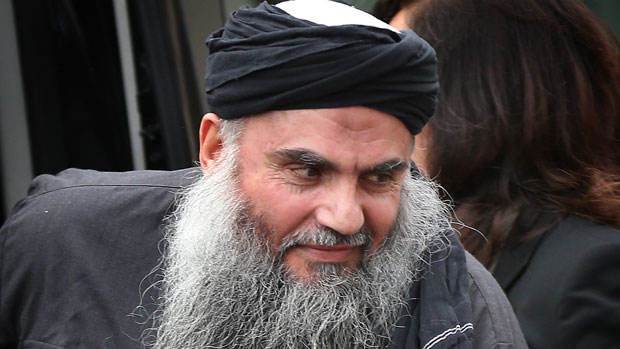Abu Qatada found not guilty of terrorism conspiracy charges
After decade-long extradition battle, charges quashed in Jordan due to lack of sufficient evidence

A free daily email with the biggest news stories of the day – and the best features from TheWeek.com
You are now subscribed
Your newsletter sign-up was successful
Radical preacher Abu Qatada has been acquitted by a Jordanian court of a number of terrorism charges.
Qatada, whose real name is Omar Othman, was accused of being a mentor to jihadist cells in Jordan while he was living in Britain, providing support to a campaign of violence during the late 1990s. This included a series of bombings, including of a hotel, in Jordan in 1998.
But the charges were quashed today by a panel of civilian judges sitting at the State Security Court in Amman due to a lack of sufficient evidence.
The Week
Escape your echo chamber. Get the facts behind the news, plus analysis from multiple perspectives.

Sign up for The Week's Free Newsletters
From our morning news briefing to a weekly Good News Newsletter, get the best of The Week delivered directly to your inbox.
From our morning news briefing to a weekly Good News Newsletter, get the best of The Week delivered directly to your inbox.
Qatada will not be freed as he still faces separate charges related to a foiled plot to attack tourists during Jordan's New Year celebrations in 2000. This hearing has been postponed until 7 September.
The preacher pleaded not guilty to all charges of terrorism at the start of his trial in Jordan, claiming the case against him was "fabricated".Since he was first arrested in 2002, Qatada was in and out of British jails and detention centres, as the British government fought to deport him.
He was never convicted of any offence in the UK, but was convicted in his absence in Jordan and sentenced to life imprisonment with hard labour.
These convictions were eventually thrown out because they were based on evidence that might have been acquired by torturing his co-defendants.
A free daily email with the biggest news stories of the day – and the best features from TheWeek.com
It was not until Jordan finally signed a treaty banning the use of evidence acquired through torture that Qatada was deported for a retrial last year.
Today's verdict will raise concerns that Qatada may use his influence to "destabilise the Jordanian state at a time of increasing turmoil on its borders", says the BBC.
During the trial he reportedly spoke out about the conflict in neighbouring Syria, urging the two main jihadist factions, the al-Nusra Front and the Islamic State in Iraq and Syria (Isis), to unite behind the leader of al-Qaeda, Ayman al-Zawahiri.